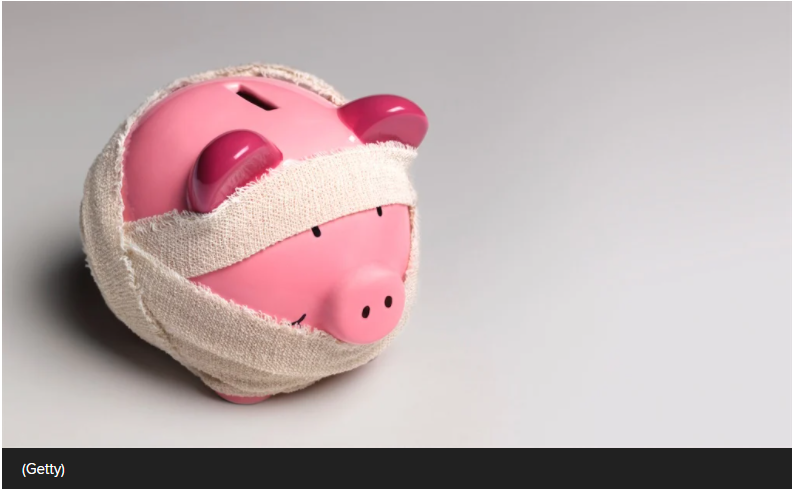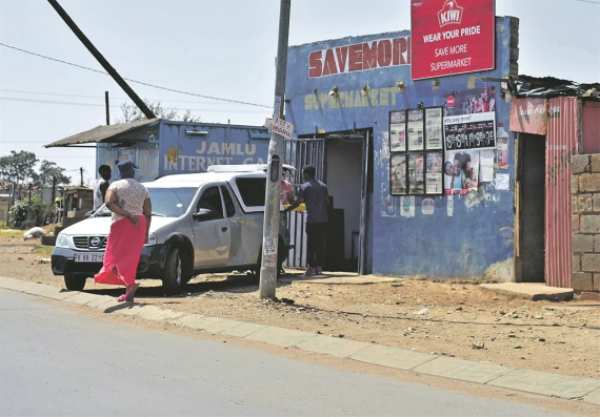- South Africans are more anxious about finances than health, a Deloitte survey has uncovered.
- Consumers are delaying making large purchases, while some are worried about upcoming payments.
- The anxiety felt by consumers is directly linked to the government's slow-footedness when it comes to the vaccine rollout.
Accounting firm Deloitte has said that South Africans worry more about their finances than they do about getting Covid-19.
The firm said in their State of the Consumer tracker, which measures consumer sentiment across 18 countries for March 2021, anxiety levels related to the pandemic are waning in most regions except South Africa, India, Chile, Italy, and Ireland. These countries all reported rising anxiety levels, especially in the past week. Indian consumers were 27% more anxious, followed by South Africa at 12%. The biggest driver of anxiety among South Africans was financial stress.
This stress was this past week exacerbated by stiff petrol hikes. This comes at a time when consumer wallets are already under strain, further knocking consumer confidence.
Other markets surveyed included the US, UK and Japan, whose anxiety levels declined by at least 10%, with Covid-19 being the primary anxiety driver in the markets surveyed.
However, this differed in South Africa, where financial concerns took precedence. Three-quarters of South African respondents said financial stress was the main driver of anxiety, while some also listed Covid-19 as a concern.
In South Africa, consumers reported feeling anxious about personal well-being and being anxious about their family's health. More than half of consumers surveyed said they were delaying making large purchases, while some are worried about upcoming payments. At the same time, 56% of consumers are concerned about losing their jobs, and a third are concerned about returning to work.
Twin concerns
"Consumers are being hit by twin concerns – health and livelihoods. Navigating these concerns is leading to a profound shift in consumer behaviour, with South Africans choosing to spend more time at home and exercising caution around big-ticket items and discretionary purchases," said Rodger George, Africa consumer consulting leader at Deloitte.
According to the survey, a decline in the number of new Covid-19 cases has influenced safety perceptions, with a gradual return to more risk-controlled activities. Currently, 55% of consumers feel safe going to the store, and 47% feel safe engaging in in-person services, such as going to a hairdresser, doctor or dentist. Only 34% feel safe taking a flight, and 36% feel safe staying in a hotel.
Some 41% of consumers said they do not have sufficient income to sustain their expenses, according to Deloitte data.
More details around South Africa's vaccine rollout would help to ease anxiety, with 24% of respondents unsure when they will be vaccinated, 19% saying they will refuse to be vaccinated, and 16% expecting that they will only be vaccinated at the end of the year, read the survey.
Vaccine rollout paused
The Johnson & Johnson Covid-19 vaccine rollout has been temporarily paused in South Africa following reports of six cases of severe blood clots among 6.8 million people who received the vaccine in the US.
"Consumers respond to these twin concerns around health and finances by choosing to do more at home, and this trend is likely to continue post-pandemic. Behaviours include cooking, buying fresh food, streaming entertainment, shopping online and home improvement projects."
According to the survey, only 6% of groceries are bought online, but 32% of restaurant and take-out food purchases now happen online. Buying online for an in-store pick-up is also growing in popularity.
"Safety is still a big concern for consumers. Although 55% of people say they feel safe to visit a store, the onus is on retailers to offer a safe environment. Retailers can think about how to make shopping less stressful and how they can provide omni-channel capability. There is an opportunity for restauranteurs, hoteliers, and others to upgrade their model and look at how they can integrate into the at-home economy," said George.
Read the ful article HERE





